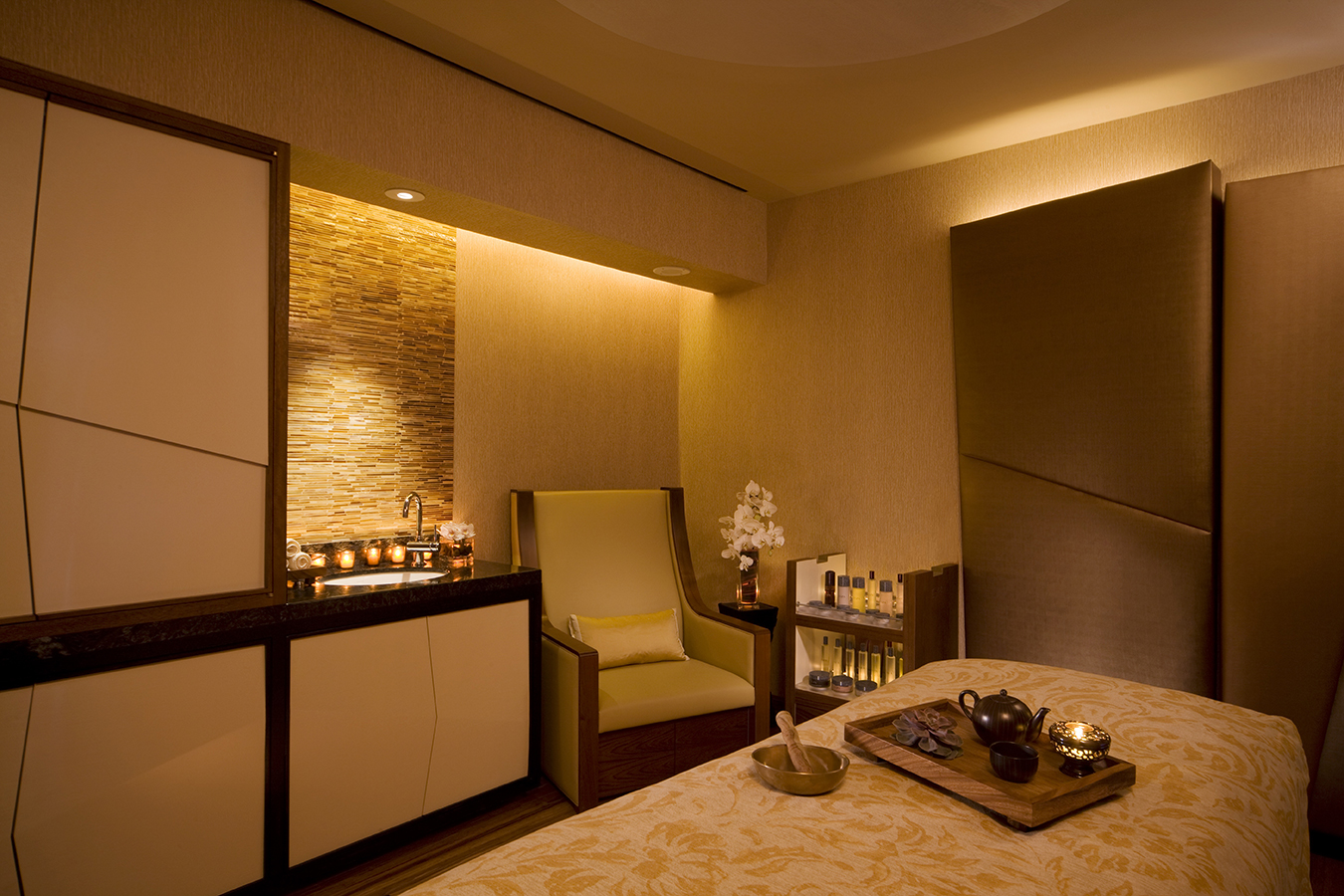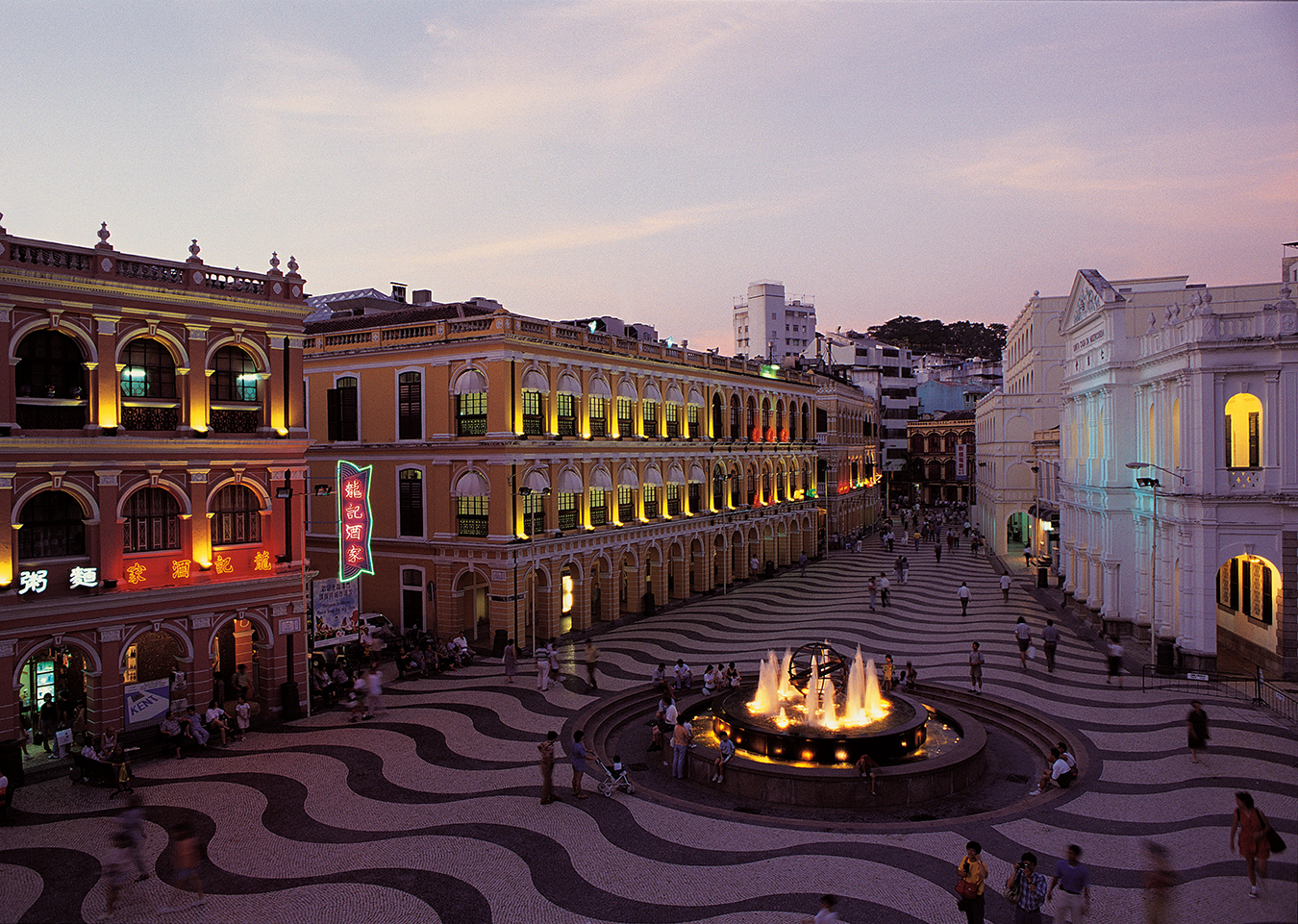Luxury Eco-travel Is Not Just a Thing of the Future
Coral lab.
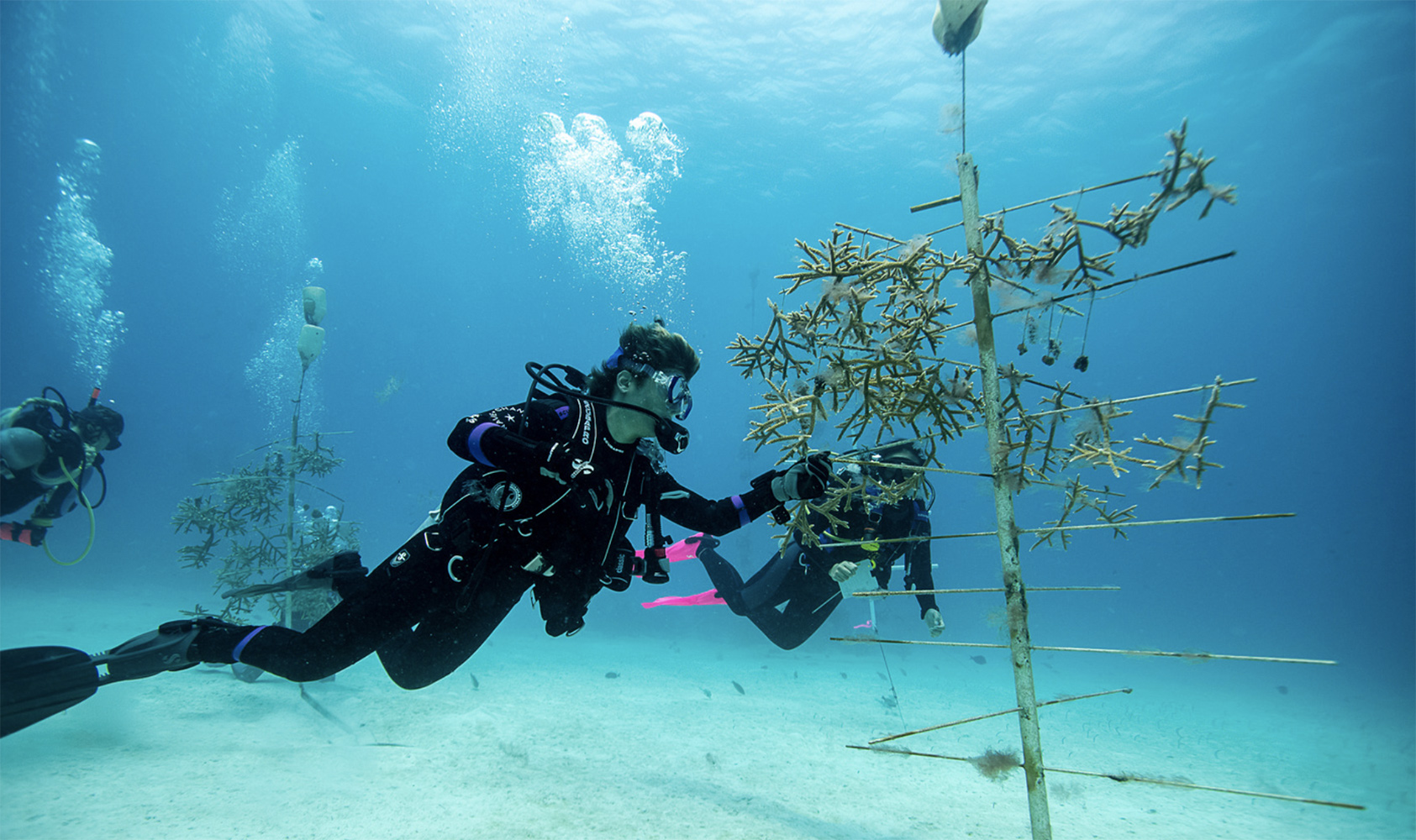
Ready to book a green getaway once travel starts back up again? Now could be a good time to be conscious of how travel affects the globe. As travellers become more aware of the effects of where and how they travel, the onus shifts to the companies to create environments that mitigate potential negative consequences. Luckily, there’s no need to compromise luxury for eco-conscious practices. Some companies are prioritizing the need to make properties sustainable. Take, for example, the evolution of Iberostar’s environmental policies that have evolved into full-scale coral reef restoration.
“The first goal was to eliminate single-use plastic in all our operations by 2020,” says Iberostar science communicator Nicholas Komisarjevsky. “It started with eliminating straws and other plastics, and it’s evolved towards moving towards a circular economy, an economic system where you reduce and reuse before you recycle,” he says. “Essentially, you want to have zero waste.”
At Iberostar’s Coral Level at Selection Baváro in Punta Cana, there is no single-use plastic on site. Toiletries are refillable, and guests are given two glass bottles for water. “In 2019, 607 tons of plastic were avoided and 402 water fountains all over the hotel were installed,” says Nicholas Komisarjevsky.
Beyond the efforts on land, Iberostar is looking to the sea. The Spanish hotel company is focused on making its seafood supply sustainable and also protecting the ocean around which it operates. To do so, it launched its Wave of Change initiative on World Oceans Day. Part of the initiative includes a coral lab at Iberostar’s Dominican Republic resort led by marine biologist and director of sustainability, Dr. Megan Morikawa.
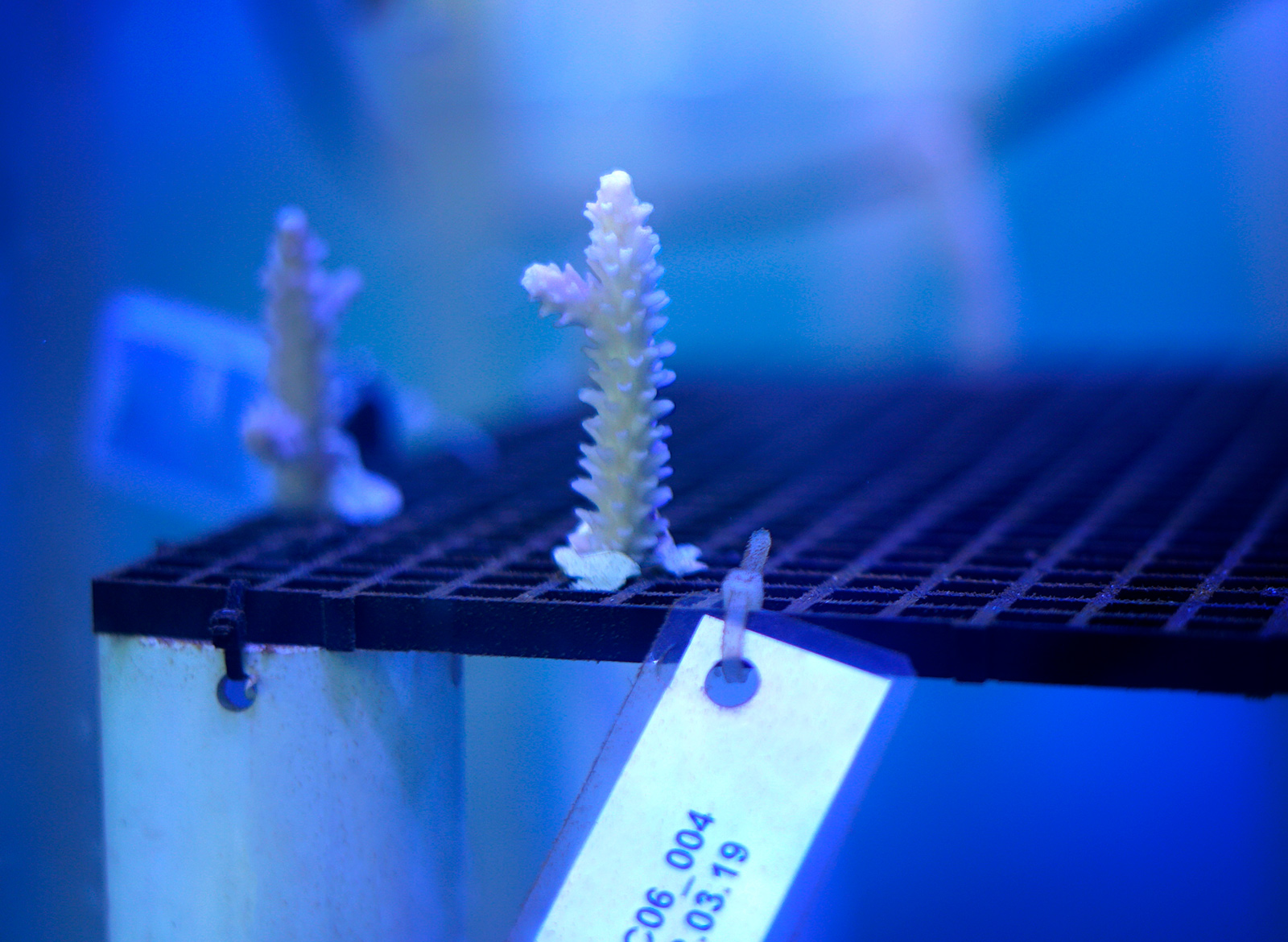
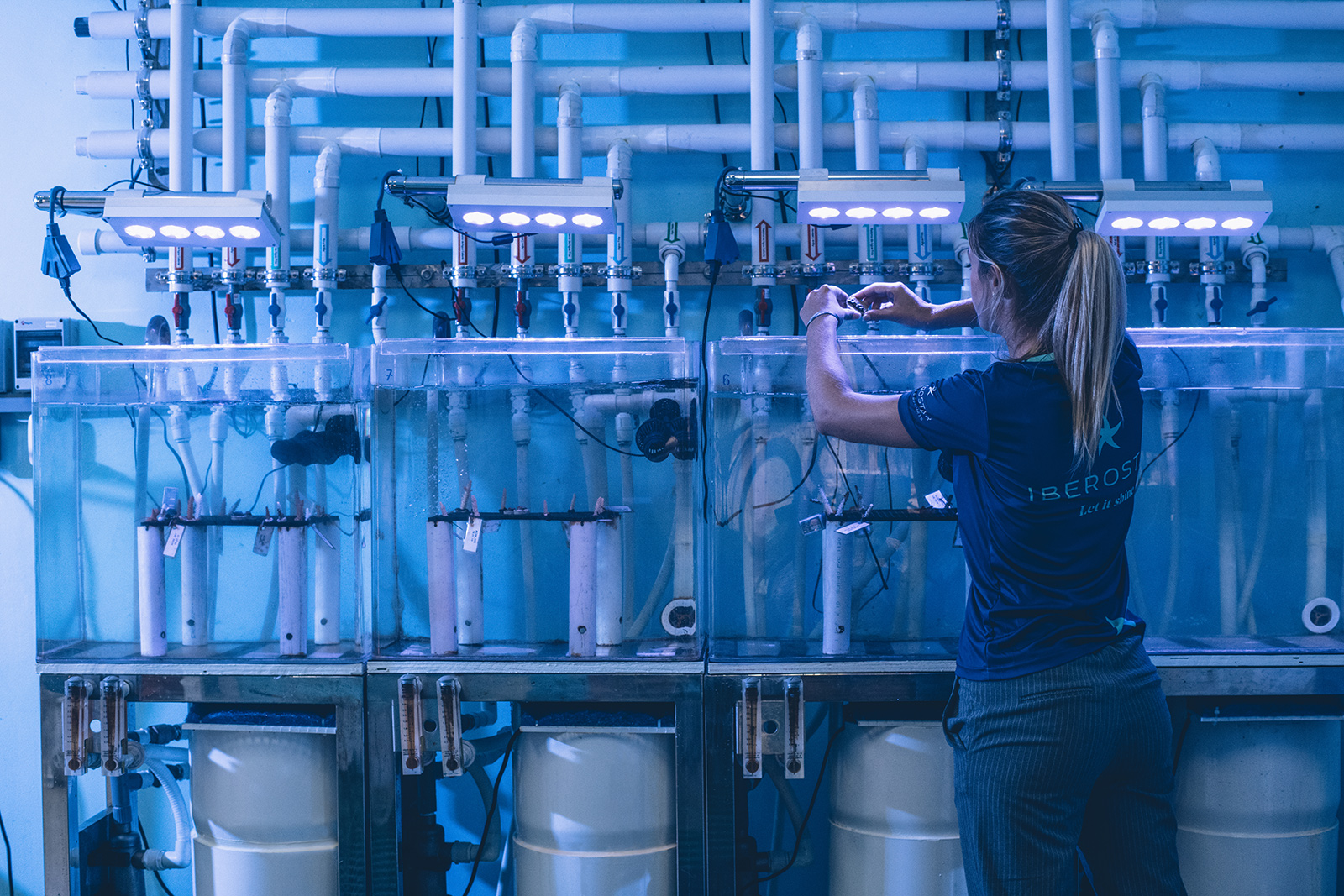
Why is coral so important?
“Coral reefs represent only one percent of the oceans’ surface, and yet they are home to one quarter of marine species,” says science coordinator Macarena Blanco. “They are like the tropical forest of the sea,” she explains. “They give food security and livelihoods for coastal communities and billions of people, and the values are estimated to be 30 billion dollars a year.” Preserving coral has benefits on land, too. “Coral reefs are also natural barriers that protect the coastline from floods and tsunamis,” she explains. Eighty per cent of Iberostar’s coastal properties border coral reefs, which means there are 5.6 square kilometres of reef protecting the hotels, which Iberostar values at two million dollars a year.
Why a coral lab?
The coral lab was created to lead preservation and restoration efforts in the Caribbean and beyond. “We use these structures because we want to have these tissues to transplant on the reefs,” says Blanco, pointing to the facilities’ coral sample tanks. Though it’s easy to cut coral to reproduce them like plants, the difficulty comes with transplantation. “If you don’t know if they’re clones or unique individuals, and the coral isn’t resistant to stress, the next year, they’ll all bleach or die,” she continues. “Corals are really sensitive to any changes in the environment. They like very specific conditions and a small range of temperatures, the water can’t be contaminated, and they need water flow.” If any of these changes occur, coral get stressed. “When stressed, coral expels the micro-algae of their tissues, lose pigments, and become white. This is called coral bleaching, and it is happening globally.”
How it works
“Our goal with this facility is to determine how many unique individuals we have in the same species and which of those are more resistant to stress,” she says. Through its research, the team has identified 30 different individuals existing in the ocean surrounding the hotel. “This plant makes restoration efforts more effective,” says Blanco.
When it comes to transplantation, it’s a methodical process. “We have the parent colonies marked, and we have a map and pictures.” After the observation period, the plan is to begin transplanting the most stress-resistant coral back into the ocean. “The more genetically diverse they are, the more chances that there are individuals that can resist the conditions,” says Blanco. It might be a small lab, but they’re hoping to bring about big change.
________
Never miss a story. Sign up for NUVO’s weekly newsletter here.



